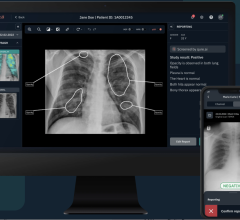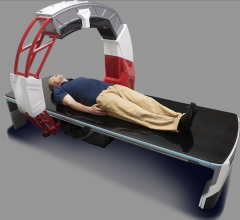April 12, 2007 – Toshiba America Medical Systems Inc.’s Aquilion beta 256, a scanner that is reportedly able to measure subtle changes in blood flow or minute blockages forming in blood vessels no bigger than the average width of a toothpick in the heart and brain, was recently installed at a U.S. university medical center for three months of safety and clinical testing.
The two-metric-ton device, installed at Johns Hopkins University, is reportedly the first of its kind in North America and the second outside of Japan, and is said to have four times the detector coverage of its immediate predecessor, the 64-slice CT.
Cardiologist João Lima, M.D., an associate professor at Johns Hopkins University School of Medicine and its Heart Institute, will lead the cardiovascular evaluations. The system can reportedly image the earliest signs of restricted blood flow, long before symptoms appear or an organ becomes permanently damaged.
The major technological advantage of the 256-slice CT is that it is equipped with more detectors than the 64-slice CT, and in a single scan it can cover four times the area. According to the manufacturer, a single rotation of the device’s x-ray-emitting gantry can image a diameter of 12.8 cm, a slice thick enough to capture most individual organs in one swoop, including the brain and heart, entire joints and most of the lungs and liver.
© Copyright Wainscot Media. All Rights Reserved.
Subscribe Now


 August 09, 2024
August 09, 2024 








